5 Unexpected Ways to Boost Your Bone Density
Forty-four million people in the U.S. are affected by osteoporosis or low bone mass. You already know you should get enough calcium and vitamin D. Here are other habits that strengthen your skeleton.
By Jessica Migala
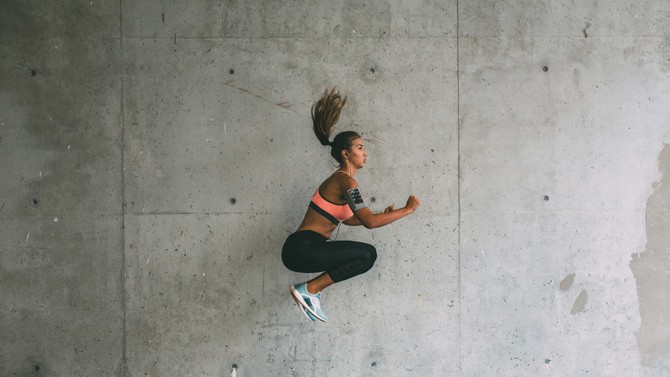
Photo: Todor Tsvetkov/Getty Images
Jump (slowly)
Exercise is regenerating to your muscles—and your bones—and one type of movement comes out a leap ahead. In a study in the American Journal of Health Promotion, premenopausal women who jumped 10 to 20 times twice a day improved their hip bone-mineral density after 16 weeks better than a control group. The catch? You need a 30-second rest in between each jump. That's because bone becomes desensitized with repeated stress, quickly acclimating to the motion of jumping continuously, says study co-author Larry Tucker, PhD. Bones then don't have the opportunity to rebuild and strengthen. Waiting the 30 seconds, however, doesn't allow bones to adapt to the stress from exercise, driving greater gains in bone mass.
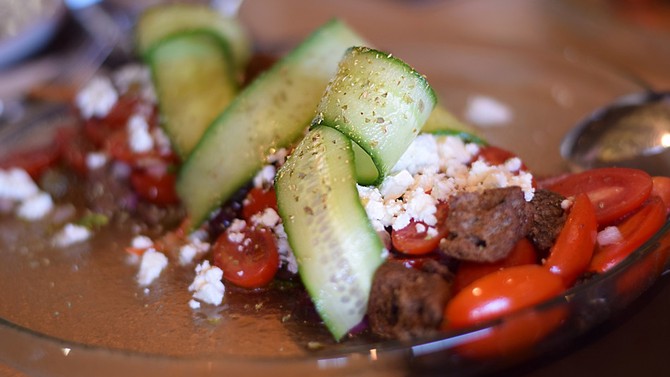
Photo: Elena Pejchinova/Getty Images
Eat Mediterranean
One more reason to make sure your plate looks like a rainbow: eating a diet rich in fruits, veggies, nuts, legumes, whole grains and fish is associated with a 20 percent lower risk of suffering hip fractures in postmenopausal women compared to those who didn't adhere to the eating pattern, per 2016 research in JAMA Internal Medicine. "In addition to supplying many of the macro- and micronutrients important for bone health—like vitamins A, B, C, E and K—the Mediterranean diet is low in red meat and saturated fats, and contains lots of vegetables and fruits that are high in antioxidants," says Carolyn Becker, MD, spokesperson for the Endocrine Society and associate professor of medicine at Brigham and Women's Hospital and Harvard Medical School. Because of that, the diet also reduces levels of inflammation, something that speeds bone loss.
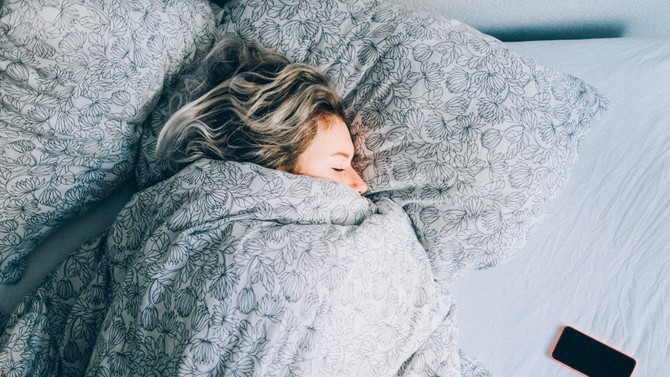
Photo: Adam Kuylenstierna / EyeEm
Get your Z's
Scoring enough shut-eye (seven to eight hours a night) can be a tall order, but it can go a long way in preventing brittle bones. In fact, a Norwegian study found that having insomnia was associated with a 52 percent increased risk of osteoporosis. Previous research, the authors note, has shown that sleep problems can be a risk factor for pain conditions. It's also a vicious cycle: People with pain from musculoskeletal conditions are more likely to have trouble sleeping, too. All the more reason to start making sleep a priority—no matter how tough that can be.
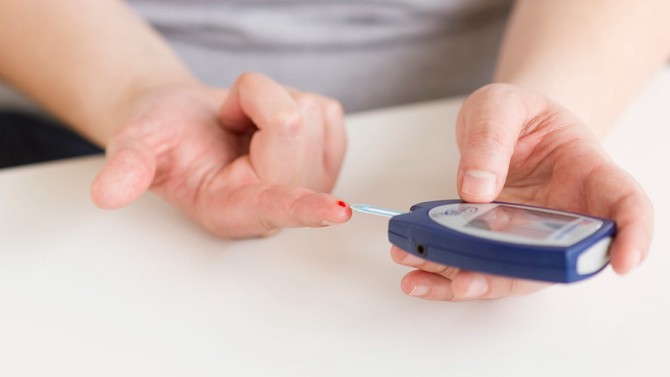
Photo: Tetra Images/Getty Images
Control your blood sugar
When you think about diabetes, bone health should (surprisingly) be top of mind. "Type-2 diabetes can have a direct effect on bone loss," says Neil C. Binkley, MD, endocrinologist at the University of Wisconsin School of Medicine and Public Health. "People with better blood-glucose control have a stronger internal architecture of their bones." According to the Centers for Disease Control and Prevention, 84 million American adults (one in three) have prediabetes (elevated blood-sugar levels), which can increase your risk for type 2 diabetes—but 90 percent don't know it. Talk to your doctor to see if you should be tested.
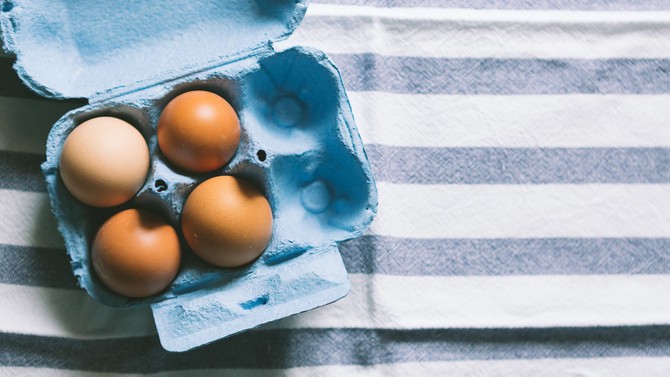
Photo: alexandraribeiro/Getty Images
Add ample protein
Your bone density today can help predict if you're likely to suffer from broken bones for the next 25 years, researchers have found. And strengthening the surrounding musculature is key for securing bones and protecting against fractures, says Binkley. Strong muscles need protein to supply "the building blocks that help to breakdown and reform muscles," he says. The current recommendation for protein intake is 0.8 grams per kilogram of bodyweight per day. (For a 140-pound woman, that's about 50 grams per day.) However, in order to maximize muscle-building, he suggests closer to 1.2 grams per kilogram of bodyweight. (That bumps up protein needs to about 76 grams per day). "We want to prevent falls and breaks. You know about calcium and vitamin D, but make sure you have an adequate protein intake, too," says Binkley.
Published 01/04/2018

